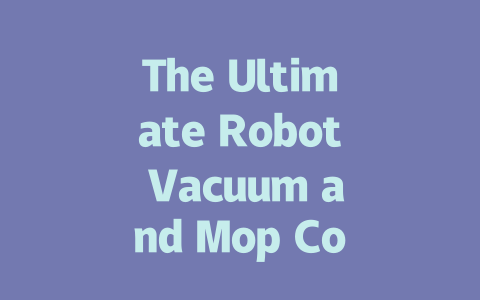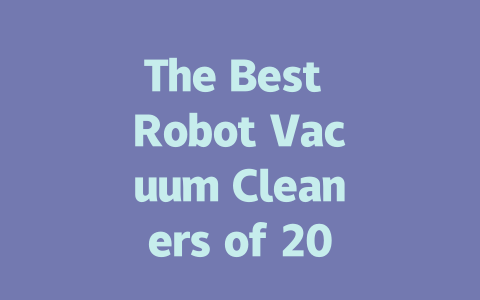
Robot vacuum cleaners have gained significant popularity in recent years, transforming the way we manage household cleaning tasks. While these intelligent devices offer several benefits, they also come with certain drawbacks that potential buyers should consider before making a purchase. In this article, we’ll explore the key advantages and disadvantages of robot vacuum cleaners to help you decide if they’re the right fit for your cleaning needs.
Advantages of Robot Vacuum Cleaners
Convenience and Time Savings
One of the most significant benefits of robot vacuums is the convenience they offer. These devices can operate autonomously, allowing you to engage in other activities while they clean. Many models can be scheduled to clean at specific times, meaning you can come home to a clean house without having lifted a finger. This time-saving feature is especially valuable for busy individuals and families.
Smart Technology and Navigation
Modern robot vacuum cleaners are equipped with advanced technology that enables them to navigate intelligently around your home. Many models use sensors to detect obstacles, furniture, and even changes in floor type. Higher-end models may feature mapping capabilities, allowing them to create a layout of your home and optimize their cleaning paths. This technology ensures that they cover every inch of your floors more effectively than manual vacuuming.
Compact and Space-Saving
Robot vacuums are typically compact and designed to fit under furniture, such as couches and beds, where traditional vacuum cleaners may struggle. This low-profile design means that they can reach areas that are often overlooked, ensuring a more thorough clean. Additionally, their small size makes them easier to store when not in use.
Disadvantages of Robot Vacuum Cleaners
Cleaning Power and Performance
While robot vacuums have come a long way in performance, they may still fall short compared to traditional vacuum cleaners, especially when it comes to deep cleaning carpets or picking up larger debris. Some users find that while robot vacuums are effective for regular maintenance cleaning, they may need to complement them with a traditional vacuum for more thorough cleaning sessions.
Battery Life and Charging
Most robot vacuums rely on rechargeable batteries, which means that their cleaning time is limited. Depending on the model and the size of your home, you may find that the robot needs to return to its charging station before completing its task. This can result in longer cleaning times for larger spaces, and frequent interruptions to the cleaning process if the battery is not adequately charged.
Maintenance and Costs
Robot vacuum cleaners generally require maintenance to ensure optimal performance, which includes regular emptying of the dustbin, cleaning of brushes, and replacing filters. These tasks can be an additional consideration for some users. Furthermore, robot vacuums can be more expensive than traditional vacuums, particularly for high-end models with advanced features. This higher upfront cost may be a deterrent for budget-conscious consumers.
Conclusion
In summary, robot vacuum cleaners offer unparalleled convenience and advanced technology that can make home cleaning more manageable. However, potential users should weigh these advantages against the drawbacks, such as cleaning performance, battery limitations, and maintenance requirements. Ultimately, whether a robot vacuum is right for you will depend on your cleaning needs, lifestyle, and budget. By carefully considering these factors, you can make an informed decision about incorporating a robot vacuum cleaner into your home.











暂无评论内容